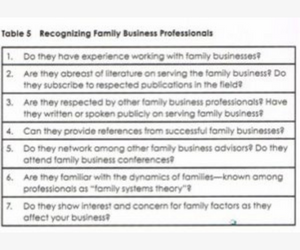Cognitive Problems: Often They’re Treatable
Dementia and Specifically Alzheimer’s Disease Dementia are for More Common Than Statistics Indicate
The statistic that 5.5 million people in the United States have Alzheimer’s disease dementia is an underestimate. My experience as a clinician-researcher shows that dementia and Alzheimer’s disease dementia are more common than providers generally realize. We may know plenty about our patient’s blood pressure or cholesterol lab values. However, we don’t often ask or examine whether our patient is having memory problems. This is understandable because for both the patient and the provider, the subject is hard and at times awkward to bring up in a typical clinical setting, and for the patient, a conversation about memory problems can seem extremely threatening. Still, if we are to address memory problems, we need to know about them, and we need to talk about them.
Ways to Broach the Subject of Cognitive Decline
When you bring up questions about memory, people immediately worry about losing their independence. This is an important point. It’s a sensitive subject, so the real challenge for us is to pay attention to how we bring it up.
I never ask, “How’s your memory?” because the answer I’d likely get would be, “It’s fine.” Instead, I’ll ask more neutral questions such as, “How are you doing managing things around the house?” With this kind of question, people are much more forthcoming. You may get responses such as, “I’m having a little trouble managing my checkbook.” “I forgot to pay a bill or paid a bill twice,” might be another. The follow-up question you might ask is, “Compared to what you used to do, have you noticed differences?” The answer may be, “Yeah, it’s just not the same.” When I get this kind of response, I don’t let it go. I follow up with, “Let’s find out what could cause this issue and let’s try to fix it.”
Possible Causes of Cognitive Problems
If you’ve found that there is a problem, start by reassuring the patient that there are many possible causes for it that are highly treatable. This is important to explain to patients. Most patients will then likely comply and undergo the various examinations you order as part of the workup. Abnormal results for any of the following tests can be associated with confused thinking:
*Thyroid level
*Vitamin B12 level (Vitamin B12 levels often indicate whether the patient is getting adequate nutrition. Often we find that for an older woman who lives alone, every meal is nothing but toast and tea.)
* Blood sugar or hemoglobin A1c level
* Red or white cell count and differential
* Brain imagining (This might reveal a tumor or multiple little strokes – more common than you think – that could explain problems with cognition).
Polypharmacy Can Interfere with Cognition
One of the big things to explore with your patient is whether polypharmacy, that is, taking two or more drugs, is causing her to be less alert. The problem is, as your patient ages, she’s likely to be using an increasing number of medications. By the time she’s 50, she may be taking 5 drugs, and for each decade beyond that, we often find that she’ll be on an additional drug. A 60-year old may be taking six medications and a 70-year old may be taking 7 medications. Interactions among these drugs could easily be the cause of her memory problems. The more medications she’s taking, the greater the likelihood that this is happening.
Explore Reducing her Exposure to Polypharmacy
Assess which of the medications are “negotiable” and which are “non-negotiable,” and openly discuss this with your patient. Typically, blood pressure medications and cardiovascular medications are non-negotiable and so is diabetes medication. In the interests of better cognitive function, evaluate how much of each medication is needed. Then look at all her medications including vitamins, muscle relaxants or antidepressants. Patients may find, as many others have, that when they take fewer medications, thinking improves.
Have a widely agreed-upon family policy that provides transparency. It will allow the young person to prepare for the role. A family policy will likely require some financial education as well as work experience, possibly in a non-family company.
In addition, mentors can provide guidance and feedback at critical junctures. These mentors can either come from the extended family or from unrelated industry professionals. It is important that the candidate feels comfortable with the mentor and that there is trust.
Importance of Communication and Agreement on Long-Term Vision
Communication and agreement on the way ownership rights should be exercised is paramount when deciding on the future direction of the family business. One way of encouraging a long-term perspective is asking family shareholders, “What do you want the decision-making structure to look like in 10 years? Or in 20 years?”
Have flexible structures that provide room for the next generation to participate meaningfully. If some family members who are owners disagree with the long-term vision, have an exit mechanism available for them.
Von Albertini says: “Keep in mind that even a ‘bullet-proof’ legal structure may not work if there isn’t broad-based buy-in. Disappointed family members can always choose to litigate, which is highly disruptive for both the operating business and the family”.
She then adds: “It is always better to have frank discussions upfront. Anything that is discussed and agreed upon at this time is much less likely to be litigated in the future.”
Emerging Field of Family Governance Experts – Institute for Family Governance Serves as Know How Hub
Successful Inter-Generational succession planning can be daunting. To help families implement strong governance that endures, von Albertini founded an organization. As she explains, “The Institute for Family Governance (IFG) achieves strong governance that endures through multi-disciplinary collaboration and know-how exchange among trusted advisors”.
IFG brings together well-known thought leaders from the fields of law, psychology and family business consulting. In the emerging field of family governance, IFG focuses on research-based best practices and practical solutions that have worked for other families in the past.
If you’d like to know more about this approach, come to the Institute for Family Governance conference in Manhattan on January 24, 2019. For more information, see: http://www.ifgworldwide.org.
Mitzi Perdue is a business owner, speaker. and author of the book, HOW TO MAKE YOUR FAMILY BUSINESS LAST. Contact her at Mitzi@MitziPerdue.com or call her at 410 860-4444.
Search Articles
Latest Articles
Ukraine’s Mental Health Crisis & AI Solutions
https://aablanco.substack.com/p/ukraines-mental-health-crisis-and?utm_source=post-email-title&publication_id=1780826&post_id=153290811 Publication –aablanco.substack.com
Tackling Trauma Through Artificial Intelligence
https://www.psychologytoday.com/us/blog/to-end-human-trafficking/202411/tackling-trauma-through-artificial-intelligence Publication –psychologytoday.com
The Diplomat Mitzi Perdue Nantucket Ukraine
https://www.n-magazine.com/the-diplomat-mitzi-perdue-nantucket-ukraine Publication –n-magazine.com
An Explosive Choice: Landmines and Ukraine
https://cepa.org/article/an-explosive-choice-landmines-and-ukraine/ Publication –cepa.org
Subscribe to Updates
About Author

Mitzi Perdue is the widow of the poultry magnate, Frank Perdue. She’s the author of How To Make Your Family Business Last and 52 Tips to Combat Human Trafficking. Contact her at www.MitziPerdue.com
All Articles
Choosing Your Family Business Advisors
Choosing Your Family Business AdvisorsKnow when you need to get help. People often ask me the secret of Frank Perdue’s success. He had to do hundreds of things right. He had to be able to see the big picture as well as be detail oriented. But there was something else:...
Substance Abuse and the Family Business
Substance Abuse and the Family Business When it comes to substance abuse, members of a family business are no more immune than the rest of the population. However, as family business advisor Loyd Rawls points out, the consequences can be more dire because serious...
Infertility: Advances In Treatment
Infertility: Advances In TreatmentAge and Infertility are Linked Infertility affects roughly 12% of women. By the time a woman is in her early 40s, her chance of infertility rises to 20%. It’s a particularly difficult problem for the older woman because the quality...
Career Advice for Young People: Shut Up and Listen!
Career Advice for Young People: Shut Up and Listen! Jack Tatem, a former Perdue Vice President, has some serious advice for young people. It’s simple and it can make a big difference in your career. It has to do with listening. The advice is, “Shut up and listen!” He...
Embedding The Family’s Values by Creating an Ethical Will
Embedding The Family’s Values by Creating an Ethical WillOriginal Article written by Mitzi can be found here. Much as I admired Frank Perdue for his success with his family poultry business, I admired him even more for his success as a family man. Since the happiness...
6-Step Solution to Almost Any Problem
6-Step Solution to Almost Any Problem 1. Describe the Problem. Preferably do this in writing. The act of putting the problem into words can clarify your thinking. 2. Write Down the Obstacles. Although I’m a fan of positive thinking, I’m also a fan of research...





